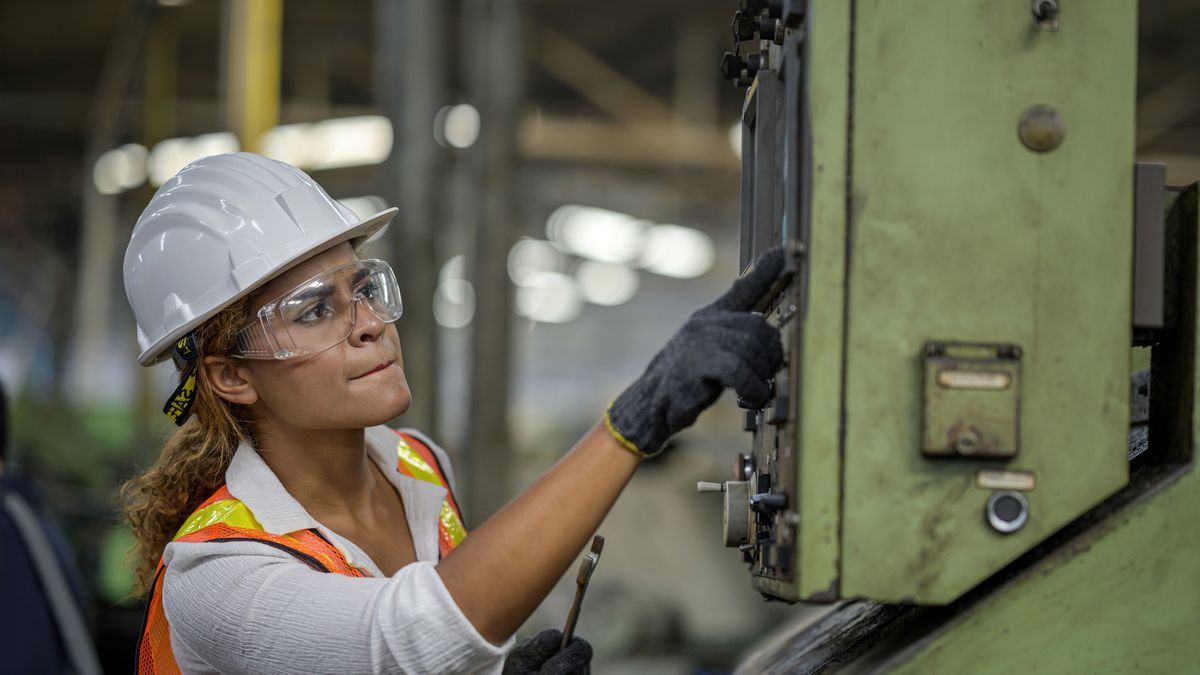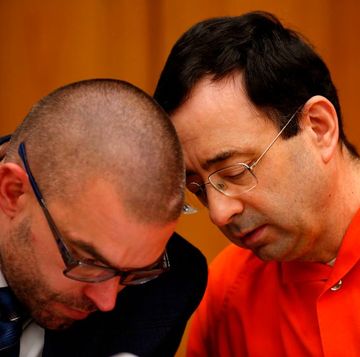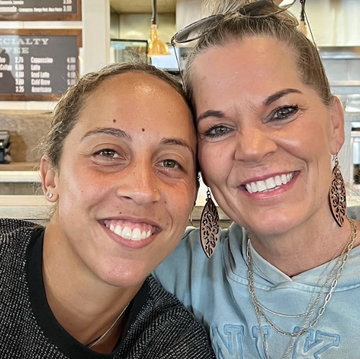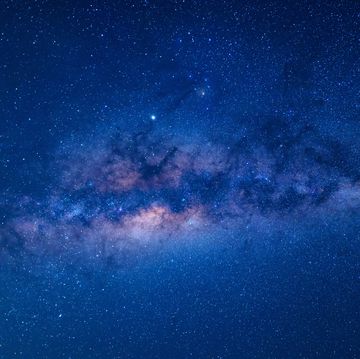You *probably* associate Labor Day as that holiday at the beginning of September where you get a Monday off from work.
Or maybe you link it to one of the many days every year where retailers promote big sales. And while you probably love a day away from your desk and a solid discount, it’s important to note that Labor Day’s history goes a lot deeper than simply providing an excuse for a long weekend.
In fact, Labor Day signifies a pivotal moment for workers in United States history. "Labor Day has become a ceremonial end of summer holiday, but it’s so much more than that," explains Elizabeth Tandy Shermer, PhD, a professor specializing in politics, labor, and history at Loyola University Chicago and author of Indentured Students: How Government-Guaranteed Loans Left Generations Drowning in College Debt.
Labor Day's origins date back to the late 1800s Industrial Era which, among other things, was characterized by a push for worker protection against an unsafe and exploitative working environment. Conditions were abysmal—n0t only were people dying on the job due hazardous machinery and exhaustion, but there were also no laws in place to hold business owners accountable for employee safety. This mean that, yes, it was perfectly legal to work hours and hours every day for low wages. (So low that families still lived in poverty no matter how much work was done.) (Sound familiar...?)
Today, roughly 78 percent of U.S. workers have Labor Day off from their jobs, according to the American Federation of Labor and Congress of Industrial Organizations (AFL-CIO).
Now that you’re a little more caught up, let’s dive into the specifics of Labor Day, including why the country celebrates it, who’s responsible for establishing it, why it always falls on a Monday, and more—according to historians. Plus, you'll learn about what you can do to ensure you’re honoring the true spirit of the holiday’s establishment and founders.
Most importantly, though, make sure you enjoy your day of rest, if and when it rolls around. (You deserve it.)
What is Labor Day, exactly?
At its most basic level, Labor Day is meant to be a day off for working people, Tandy Shermer explains. (Which, if you have any semblance of a nine to five job, means you.) Specifically, if you want to #getofficial, Labor Day "constitutes a yearly national tribute to the contributions workers have made to the strength, prosperity, and well-being of our country," according to the U.S. Department of Labor.
While it’s now morphed into a capitalist-driven symbol for holiday sales and, to be honest, extra working hours for those in retail-driven and other sales-focused jobs, it was originally meant to be a true day of rest. That said, Labor Day’s origins are rooted in bloodshed and revolt; establishing this holiday did not come easily.
Why do we celebrate Labor Day?
Labor Day is meant to remember and honor the plight of working class people, Tandy Shermer notes. It’s also meant for—wait for it—resting.
Industrial workers in the late 1800s, especially women and people of color, were often forced to work day and night with few legal limitations on working hours. Labor Day was a way for the country to recognize workers' rights on a national scale, as well as grant an extra day of rest. So, if you want to celebrate Labor Day as it was originally intended, use it to rest up and recharge for the week (and, likely, a lifetime) of work ahead.
When was it established?
Labor Day was first declared a national holiday by President Grover Cleveland’s administration in 1894, Tandy Shermer explains, but workers had been advocating on behalf of its establishment for years before the decision.
While states had been declaring Labor Day a holiday on their own for nearly 12 years, the Cleveland administration did so only as a means to quell civil unrest, says Tandy Shermer. Workers had been protesting as a result of unsafe, prolonged, and unprotected working conditions that had gone ignored by politicians for some time, Tandy Shermer explains. In fact, Labor Day actually started out as a protest (more on that in a bit).
Who established Labor Day?
Before it was nationally recognized, the first state to make Labor Day a holiday was Oregon in 1887. Other states like New Jersey, Massachusetts, Colorado, and New York followed suit that same year, according to the U.S. Department of Labor.
But Labor Day actually began as a parade which, Tandy Shermer notes, resembled more of a protest. "Working people were pushing for this parade-protest, alongside their leaders, which were the Central Labor Council," Tandy Shermer says. The Central Labor Council encouraged and aided U.S. workers in taking action like running for office or pressuring legislatures to create better working conditions for citizens, as well establishing this holiday where workers could have this one additional day of rest to themselves.
Specifically, the Central Labor Council wanted a "Labor Day" to recognize the plight of working people. Some of the Central Labor Council’s efforts even led to clashes with the authorities and, as is still true today, protestor lives were lost at the hands of law enforcement.
The eight-hour workday is even a result of Central Labor Council efforts. Their chant was "eight hours of work, eight hours for rest, eight hours for what we will," Tandy Shermer notes.
Even so, many of the protections workers fought for back in the late 1800s have been largely lost by current labor laws. Today, a majority of U.S. citizens work far more than the original intended eight hours, Tandy Shermer says.
Why does Labor Day always fall on a Monday?
You might also be wondering why Labor Day always falls on the first Monday in September.
Here’s what you should know: "At the time, the majority of the population was Christian," Tandy Shermer says. So the intention was to have a day of rest following a Sunday—the day that Christians already observed as a day of rest. "That means you're getting a longer weekend when you're getting a day off right after your Sunday. You're gonna have your day of rest again," Tandy Shermer says.
Now that you’re more informed about Labor Day’s history, remember that one of the most important things you can do when it rolls around is to, well, actually rest.
Don’t try to get ahead or sneak in an email or two. (That's extra important advice for women, who largely work what Tandy Shermer calls a "double shift," both working through the day and then coming home and caring for the family at night.) And, if you're feeling it, you can even attend a Labor Day Parade, which is still put on by many cities.












